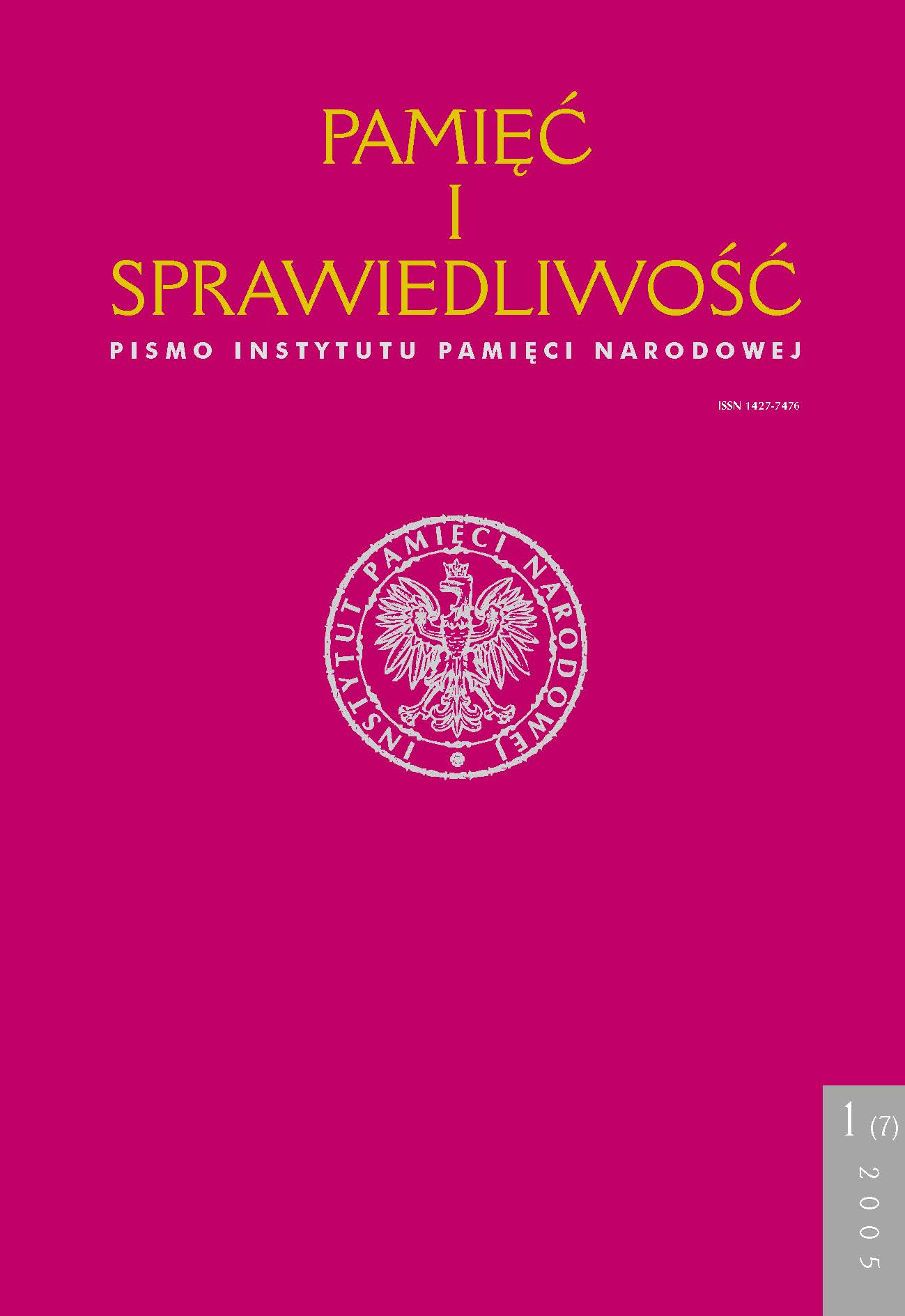Kościół katolicki w PRL – wybrane zagadnienia, hipotezy, prowokacje
Pamięć i Sprawiedliwość, Tom 7 Nr 1 (2005), strony: 11-34
Data publikacji: 2005-06-30
Abstrakt
Church-State relations in the post-war period are still an open subject, despite the large subject literature available. The reason for this is not only its broadness but also the slow process of giving access to record series which are of fundamental significance, mainly documents created by the Security Service and Church institutions (Polish Episcopate’s Chief Council and plenary conferences, where crucial decisions were made). These new sources, sometimes fundamentally, change the historian’s outlook on the described events and occurrences. This study is an attempt to verify some of the theses, which argued without
the knowledge of these records, have already become all too firmly entrenched.
The communist authorities’ policy concerning religious matters practically did not change. This can be seen from the vantage point of the statutory law, the ruling atheistic ideology as well as the missions carried out by the Security Service and the Office of Religious Beliefs for the communist party during the whole post-war period. The fluctuations of this policy depended on the levels of social resistance and the strength of the authorities. Additionally, the heavy repressions instituted against the Church, its members and property, in the first decade of communism, aimed at pushing Catholicism onto the margins of political life, gave the changing ruling party groupings that followed the possibility to use far more refined methods to sideline the people of the Church. Analysing the efficiency of this policy is another matter.
The Polish Church hierarchy – starting with Cardinal Stefan Wyszyński, Primate of Poland (1948–1981) – looked down upon priests who got involved in contacts with the authorities with censure, however, they also were very sceptical about priests who were on the verge of placing the interest of the widely understood political, legal and underground opposition above that of the Church. This scepticism concerns not only the Jesuit Władysław Gurgacz, a soldier and chaplain of the underground resistance in the 1940s, condemned to death by the communists, but also the Dominican Father Ludwik Wiśniewski, the university chaplain in the 1970s, who supported the democratic opposition and,
finally, Father Jerzy Popiełuszko, the Chaplain of “Solidarity”.
The bishops were similarly sceptical about the work of the so called “licensed” Catholics. This formation (which is especially interesting after 1956) in my opinion includes not only associations like PAX or the Christian Social Association but also the “Znak” grouping in Parliament and its varied background, which today is considered to have been one of the hotbeds of opposition to the system. From the point of view of the bishops, all these groups, which received a licence to run publicly, very often became a tool in the anti-Church policy of the ruling party in the years 1956–1980. The “secular Catholic” category should be spread out over circles, which in the eyes of the Church did
not stop to be Catholic, whilst at least from 1948 never received the right to run publicly (that is the Christian Democrats and the Nationalists). The price for the licence was to acknowledge, contrary to the views of these circles, the government principles of atheist communism.
The last question concerns the Catholic-Jewish, or further Polish-Jewish problem, which is complicated and thorny after 1945 due to historical circumstances. The problem concerns changes which took place, among others within the post-Vatican Council Church, as well as the post-war experience, when there was an overrepresentation of people of Jewish extraction in the communist authorities. During the PRL period the communist
authorities – not only in 1968, but also in the following decades – used the Jewish issue to foment otherwise understandable resentments, which were also held by some secular Catholics as well as the Church hierarchy. The problem of Catholic-Jewish relations cannot be solved merely by assuming that the Polish (Catholic) side is guilty of the tensions existing after the war, which were not solved due to the fact that the Polish nation was not independent during the PRL period.
Inne teksty tego samego autora
- Rafał Łatka, Jan Żaryn, Czy Kościół katolicki był permanentną opozycją wobec rządów komunistów w Polsce „ludowej”? , Pamięć i Sprawiedliwość: Tom 35 Nr 1 (2020)
- Antoni Dudek, Jan Żaryn, Andrzej Friszke, Wiesław Jan Wysocki, Jarosław Gowin, [Dyskusja] Komunizm i religia w Polsce – trwanie i zmiana , Pamięć i Sprawiedliwość: Tom 7 Nr 1 (2005)
- Jan Żaryn, Biskupi polscy w roli przewodników narodu. Refleksje o książce Rafała Łatki Episkopat Polski wobec stosunków państwo–Kościół i rzeczywistości społeczno-politycznej PRL 1970–1989, Instytut Pamięci Narodowej, Warszawa 2019, 848 s. , Pamięć i Sprawiedliwość: Tom 36 Nr 2 (2020)
- Jan Żaryn, O katolicki kształt Solidarności, część 1 , Pamięć i Sprawiedliwość: Tom 37 Nr 1 (2021)
 Język Polski
Język Polski
 English
English
 Deutsch
Deutsch
 Français (France)
Français (France)
 Italiano
Italiano
 Русский
Русский


 PDF
PDF
